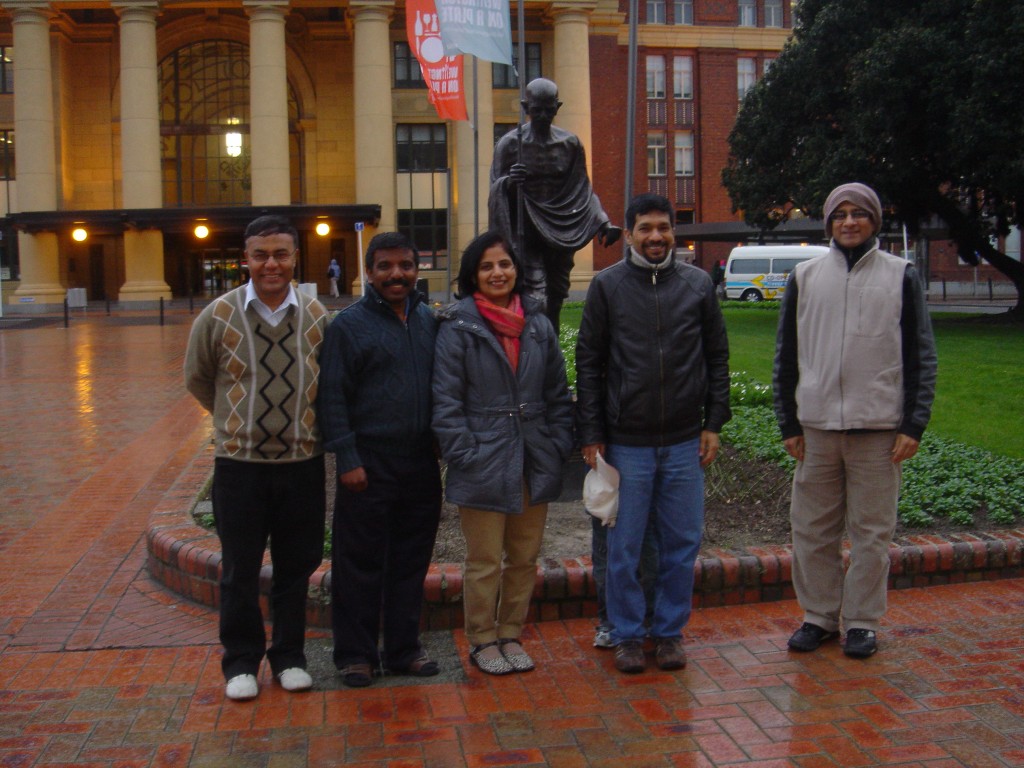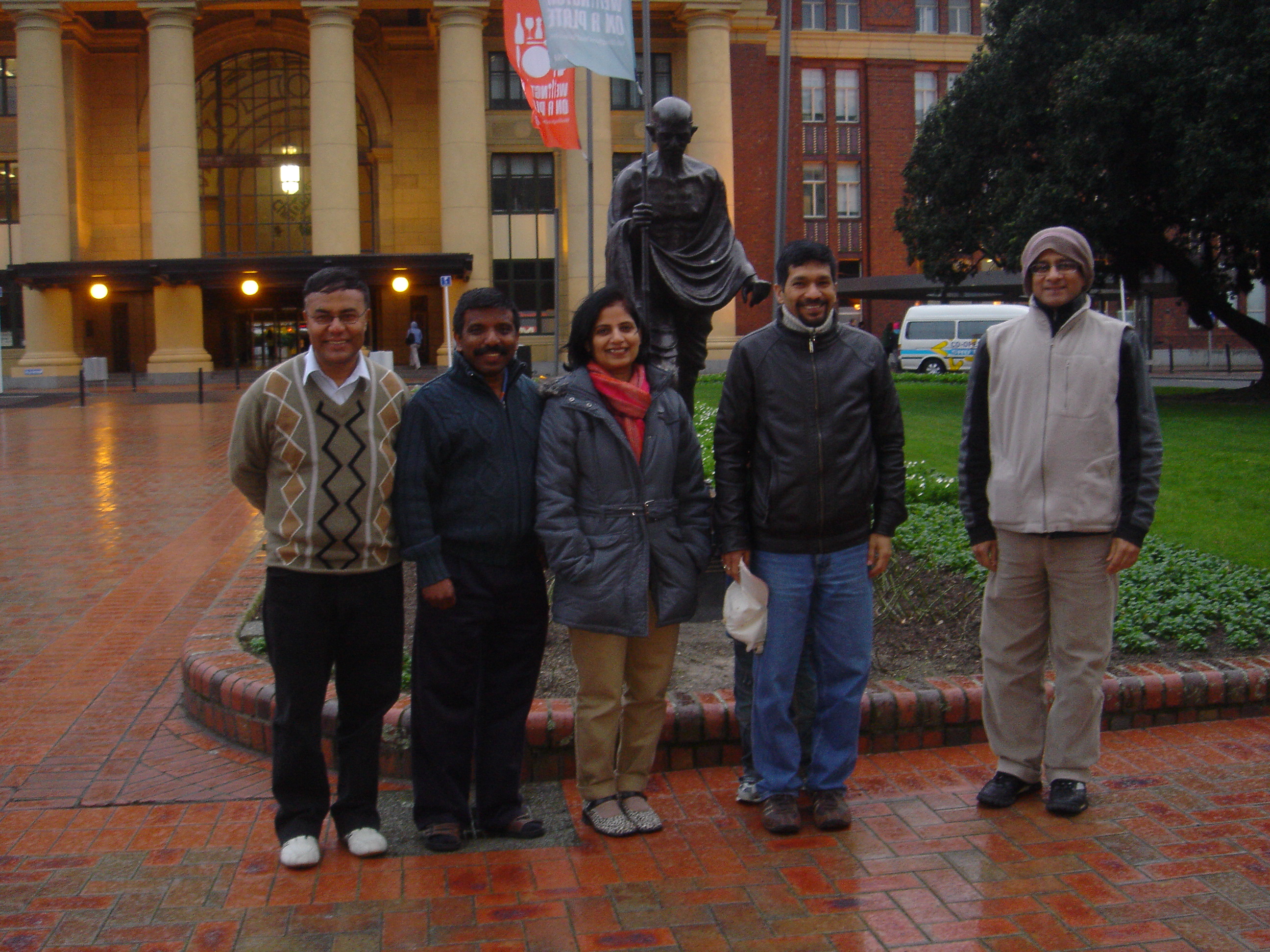A statue of Mahatma Gandhi greets you as you come out of the Wellington Railway station. Mahatma Gandhi led India’s movement of independence with the principles of ahimsa (non-violence) and satyagraha (truth and justice). However, these principles were used in a fight against the same coloniser in Aotearoa (New Zealand) by the indigenous Maori community almost 50 years before the Mahatma popularised the doctrines, say two researchers.
“Post 1850s, colonisers in Aotearoa were employing various subterfuges to confiscate land from the indigenous Maori, just like they were doing in other parts of the world including India,” Drs. Rajiv Chaturvedi and Ihakara Porutu Puketapu told a conference audience in Auckland.

They were speaking at the fourth New Zealand Hindu Conference organised by the Hindu Council of New Zealand (HCNZ), sharing their presentation: “Maori Leader Te Whiti o Rongomai: Dharmic principle of ahimsa (non-violence) in the resistance of 1870’s Aotearoa New Zealandâ€.
“Their methods included, as usual, inflicting war and violence on the indigenous holders of land. Parihaka, at that time the largest Maori village, took the lead in a major campaign of non-violent resistance against the European colonisers.
“Te Whiti-o-Rongomai (c. 1830 – 1907), the Maori leader who founded Parihaka in the Taranaki region of Aotearoa, inspired Maori people to resist the Europeans for their rights to land without using violence even in the face of violent provocation.
“In 1881 he led 2000 Maori to oppose trigger-happy colonising soldiers by courting arrest as the means of opposing the violent army of the coloniser.
“Te Whiti’s words in March 1880 in the face of British guns expresses the courage of strong conviction of Maori culture and an exceptionally strong human spirit. “Let not the Pakehas think to succeed by reason of their guns … I want not war, but they do. The flashes of their guns have singed our eyelashes, and yet they say they do not want war … The government come not hither to reason, but go to out-of-the-way places. They work secretly, but I speak in public so that all may hear”. The parallel with similar thinking of Hindu Dharma and other ancient cultures is unmistakable.”
Earlier, the same presentation was made at the fourth International Conference of Elders of Ancient Cultures held in Haridwar, India, when New Zealand’s first Maori delegation travelled to India.
Hindu Council of New Zealand has proposed a lasting tribute to the Mahatma of Parihaka, Te Whiti O Rongomai, through his presence in an equally prominent place in Wellington as is Mahatma Gandhi.
Dr. Ihakara Puketapu, former Secretary of Maori Affairs, says: “It is important to add to the legacy of our ancestors for our future generations.â€
Also read: Rotorua to host first Indo-Maori meet

Leave a Reply